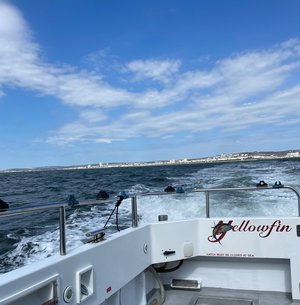What links the port of Bristol, a Gujarati refinery, Gatwick airport, and a converted courthouse in the sleepy town of Grays, Essex? The answer is Russian oil, thanks to the increasingly murky trade going underground to keep Vladimir Putin’s most important export flowing around the world.
The war in Ukraine has dramatically transformed global oil flows, brought new players into the trade, and caused prices to spike and fall. Yet despite the upheaval, demand for the Kremlin’s oil has held fast. After a year of brutal war in Ukraine, and tough talk from Western governments, 2022 was Russia’s best exporting year since 2019.
The story of this trade is the story of the fringes of the fossil fuel industry, players attracted by high risks and high rewards, who are exploiting loopholes in the sanctions to bring Russia’s oil to market. The journey of any single barrel of Russian oil from port through to pump involves a trail of companies and individuals from countries that have publicly sworn off Russian fossil fuels.
Global Witness traced one such journey and found Western companies implicated from start to finish.

Our small catamaran was carrying five: a captain, skipper, two journalists and a campaigner. Credit: Global Witness
Artemis
We set off from Brighton into the choppy waters of the English Channel to try and catch a glimpse of Artemis, a crude oil tanker that departed the Baltic port of Primorsk in mid-April. Our small catamaran was carrying five: a captain, skipper, two journalists and a campaigner. Laden with three-quarters of a million barrels of Russian oil, Artemis is a member of what’s known as the ‘shadow fleet’ - group of aging tankers with opaque corporate structures and unknown ultimate ownership that are deployed to transport sanctioned oil.
The tanker is operated by Gatik Ship Management, which formed last year and has rapidly grown, acquiring over fifty vessels valued at $1.3 billion. Very little is known about the India and Dubai-linked entity, whose website has been ‘under construction’ for over six months, despite it having one of the fastest growing fleets in shipping. Many of Gatik’s tankers, which have an average age of 17 years, would normally be headed for a scrap yard, but despite their high risk, they’ve been given a second life shuttling oil from Russia to India.
Twelve miles off the coast, the white cliffs just out of sight, our captain cut the engine. We were in the middle of a nine-mile-wide shipping lane, he said, a busy throughway for shadow fleet tankers. Leaving Russia’s Baltic ports, they make their way through the North Sea, into the English Channel, passing just off the coast of Eastbourne, Brighton and Cornwall, raising the risks of a disastrous oil spill that would devastate British and French coastlines.
Whether anyone would foot the multibillion-dollar clean-up bill in the event of a spill is unclear. Last week, the American Bureau that previously provided insurance to much of Gatik’s fleet withdrew its coverage, including to Artemis, because of suspicions that they are buying Russian oil above the G7 price cap. The price cap, designed by the U.S. Treasury, forbids Western companies from providing services like insurance to Russian oil trades, unless the oil was purchased below $60 USD per barrel.
Without sufficient insurance, and where vessels are dangerously old, the shadow fleet’s tankers are ticking time bombs. Transiting the world’s busiest waterways, they have significantly increased the risks of oil spills. Many of the shadow fleet operators, it turns out, are clients of a small British company based in Essex.
The Ship Registry
The Thameside town of Grays in Essex is an unlikely feature in Russian oil supply chains. Twenty miles east of London, the town’s old courthouse, now a shared office space, is home to the international ship registry for the dual island nation of St Kitts and Nevis. That means that any ship wishing to fly the Caribbean state’s flag must go through a private British company.
Like most of Gatik’s tankers, Artemis flies the flag of St. Kitts. There are many reasons shipowners adopt flags of other countries – some to avoid paying taxes, most others to swap more robust labour and safety standards for laxer regulations. Prior to Russia’s invasion, St. Kitt’s primarily registered smaller boats like tugs, yachts, and fishing vessels. Now, it’s the flag of choice for a large portion of the shadow fleet: over 70% of Gatik’s fleet is flagged by the UK-incorporated registry. Under pressure, the registry recently announced that it would de-flag the 36 Gatik tankers on its roster.
Vadinar
Some hours after we first entered the shipping lane, we finally caught sight of Artemis. Using AIS data, we tracked its location up the Channel; our catamaran a tiny blip alongside the 250-metre giant. Using the boat’s satellite radio system, we made contact with Artemis’ captain who confirmed their final destination.
Like many tankers transporting Russian crude, Artemis is headed to the Gujarati port of Vadinar, on India’s west coast. As Western embargoes came in, India stepped up imports of Russian crude, replacing a large portion of Europe’s demand. In January 2023, India imported over 57 million barrels of Russian oil, a figure nearly 20 times higher than January 2022. Much of this oil is ultimately destined for re-export as diesel or jet fuel.
Indian refineries like Vadinar and Jamnagar, which imported almost no Russian crude before the war, are now running on it. Thanks to a loophole in Western sanctions, once Russian crude has been refined, it can be shipped and imported anywhere in the world.
As these Indian refineries stepped up their Russian crude imports, Britain increased its import of their diesel and jet fuel. This January, over half of Vadinar and Jamnagar’s total crude inputs came from Russia. At the same time, Shell and BP’s purchases from the refineries comprised 4.8% of total UK refined product imports. In contrast, the UK accepted only a single import from Vadinar in the two years preceding the war and has nearly tripled its imports from Jamnagar between 2021 and 2022. It is not suggested that UK acquisition of Vadinar fuel or Gatik’s management of shadow fleet tankers infringes sanctions or is otherwise unlawful.
Vadinar refinery's corporate structure further demonstrates the entanglements between Russia’s fossil fuel industry and the west. The refinery is owned and operated by Nayara Energy, a joint venture between Rosneft, Russia’s largest oil and gas company and Mareterra Group Holding an investment group based in Rome. Rosneft, which holds a 49% stake in Nayara, is run by Igor Sechin, a heavily sanctioned oligarch and one of Putin’s closest allies.
When Artemis unloads in Vadinar, the crude will be turned into new products, completing the load and rinse cycles of a laundromat that keeps Russian oil flowing. From Vadinar, these products are loaded onto yet more tankers and sent back around the world.
Gatwick via Gujarat
In April, another tanker, the Sunny Liger, docked in Bristol. Carrying almost half a million barrels of jet fuel from Vadinar, it unloaded into the port which handles a quarter of all the UK’s aviation fuel, delivering it directly into a network that serves major airports including Heathrow and Gatwick. There it will likely be bought by commercial airline companies, taking holidaymakers and cargo around the world.
The trail ends at the UK’s largest airports. From the Russian port of Primorsk, some of that oil had travelled through the English Channel, across the straights of Gibraltar, into the Mediterranean, down the Suez Canal, and further toward the Indian coast. Refined and shipped back, along the same route, to the port of Bristol, its journey transited approximately 17,000 miles, releasing vast amounts of carbon into the atmosphere along the way.
This extraordinary journey demonstrates the lengths the fossil fuel industry is willing to go to maintain the oil trade, even as it wrecks our climate and funds war crimes.
Only one way out
Oil is slippery. The fossil fuel industry’s insatiable appetite makes this an evasive trade, prone to seeping through loopholes. Recently, Oleg Ustenko, an economic advisor to President Zelenskyy, told a reporter, “I had a friend in New York in the 1990s who complained cockroaches would get into his apartment through any available hole — that’s what Russia is doing with its energy.”
Sadly, this is the intended effect of the sanctions: to prioritize global oil supply, no matter the cost. The refining loophole which allows Russian oil to continue flowing into the UK and Europe disguised as other products is explicit – not a fluke, but by design. The US government has not been shy in its admission that its primary concern has been to minimize disruption in oil markets and keep fuel prices low. One of the principal architects, US Treasury assistant secretary Ben Harris stated, "as long as we preserve the flow of Russian oil, we consider this a win”.
The fossil fuel industry has demonstrated the extraordinary measures it will take to prolong the increasingly risky oil trade: only a transition to renewables will end it.
Listen to Mai Rosner and Louis Wilson speaking about the Russian oil trade with Paul Kenyon of the BBC. Audio credit: BBC.


